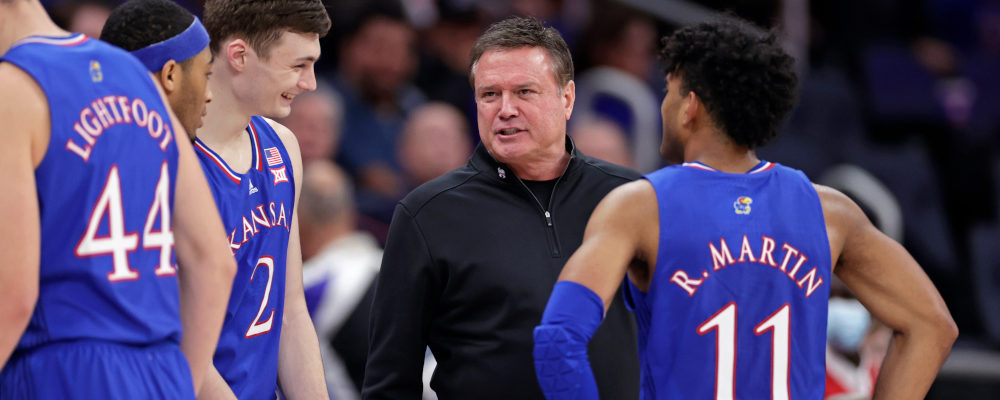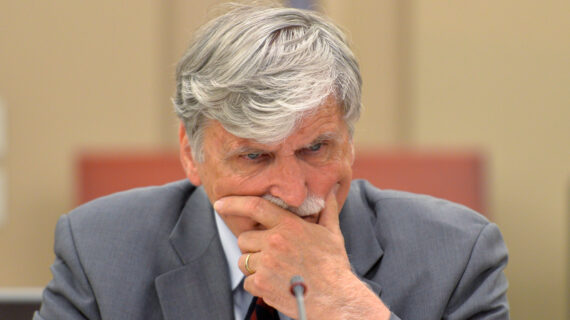Flipping between March Madness and the news last week, I was reinforced in my conviction that our best leaders go into coaching and our worst go into politics. If you took Tom Izzo, Jay Wright, Bill Self,1Bill Self Cemented as the ‘Greatest of Right Now’ with Championship Win over UNC or even soft-spoken Shaheen Holloway, the coach of Cinderella St. Peter’s, and swapped them in for any four random national politicians, I’d be willing to bet that, with a few weeks to get up to speed, the coaches would do a better job in every respect.
Now expand the pool of talent across all sports and imagine if Bill Belichick had studied defense policy instead of defensive schemes, or if Gregg Popovich, Alex Ferguson, or the late Pat Summitt had pursued diplomacy instead of basketball. From decision-making to team-building, from public communications to motivation and inspiration—is there any aspect of public life in which the best coaches wouldn’t be an improvement on the politicians?
It shouldn’t be surprising that our best leaders are coaches. For one, it’s where the money is. The highest paid public servant in most American states is a football coach.2“We know that Alabama’s Nick Saban is the highest-paid coach in the sport, earning more than $9.7 million. For one season. But seven other coaches are making more than $7 million, 21 earn at least $5 million and 37 top $4 million. The top-50 all exceed $3 million and, amazingly, 86 head college football coaches collect paychecks worth upwards of $1 mil.” https://www.si.com/college/cal/news/2021-coaching-salaries This fact is usually reported scornfully, but to give the coaches their due, they are probably the best of anyone on the taxpayers’ payroll at what they do. They are certainly the most rigorously selected and the most specialised in their training; they have usually served one or more intense apprenticeships; and they are the most scrutinised and accountable to the institutions they serve. Is their pay obscene? Of course. But is it unearned? Not really.
The best coaches are true students of the game. The time they spend learning their craft is the equivalent of an advanced graduate degree in their sport. Their on the job training usually starts in high school and continues into college and, for many of them, a professional league. They then take what they learned first-hand as a player and add to it the theory of the game, first as an assistant coach with responsibility for one position or part of a game-plan, then as a head coach responsible for a small program, and finally as the head coach of a marquee college or professional franchise.
Being a head coach is more than just mastering a mind-boggling amount of strategy. It includes keeping up with what every other successful program is doing while managing a team of other coaches, trainers, and support staff. It requires building a team of players and mentoring, nurturing, or browbeating them to get the best out of them individually and collectively. In college, it includes recruiting high school athletes and helping them grow into men, winning over boosters and donors, and dealing with fans, alumni, and the media.
In the professional leagues, it often means advising on drafting and trades, player discipline, navigating the egos of general managers and billionaire owners, and all of this under the relentless scrutiny of sports talk radio, local and cable television, beat reporters, and millions of fans on social media. This means that the best coaches are masters of strategy, tactics, opposition research, careful preparation, situational adjustment, communication, and people skills.
By contrast, what training for their job do most of our politicians have? Most of them come from professions like law and business that may require some of these skills, but not all of them. Others may have managed teams of people in the public or non-profit sectors, but almost never under the same pressure conditions as a high-level college or professional coach. Most of the rest learn on the job, which tends to produce people who are good at getting elected and re-elected, but not necessarily people who are groomed and ready to govern.
Compare what Justin Trudeau3“After studying at Collège Jean-de-Brébeuf, the same private French-language Jesuit school in Montreal that his father had attended, Trudeau earned a B.A. in English from McGill University (1994). He then worked as a snowboard instructor while earning a degree in education from the University of British Columbia (B.Ed., 1998). Thereafter he taught high-school French and elementary-school math in Vancouver.” https://www.britannica.com/biography/Justin-Trudeau or Joe Biden4“After graduating from law school, Biden returned to Delaware to work as an attorney before quickly turning to politics, serving on the New Castle county council from 1970 to 1972. He was elected to the U.S. Senate in 1972 at the age of 29, becoming the fifth youngest senator in history.” https://www.britannica.com/biography/Joe-Biden did to get to where they are, and the skills they had to—and, more importantly, didn’t have to—develop along the way to the career of retiring Duke basketball coach Mike Krzyzewski. Krzyzewski graduated from the US Military Academy at West Point in 1969, where he captained the basketball team under legendary coach Bob Knight, apprenticed as an assistant coach under the same coach Knight at Indiana, and then coached the Army basketball team for five seasons before being appointed head coach at Duke.
I started out by saying that our best leaders go into coaching, but that is backwards: it would be more accurate to say that our best leaders are made by coaching. Systems produce leaders. Some, like Churchill, may be born in palaces; others, like Napoleon, come from island backwaters. But all of them must learn to lead somewhere. For Churchill, it was the Royal Military Academy at Sandhurst, followed by service in India and the Sudan; for Napoleon, it was a military high school and the École Militaire in Paris.
The military remains one of the few institutions that still takes leadership training seriously. Sport is another one. Politics, as we continue to learn to our frustration, is not.




